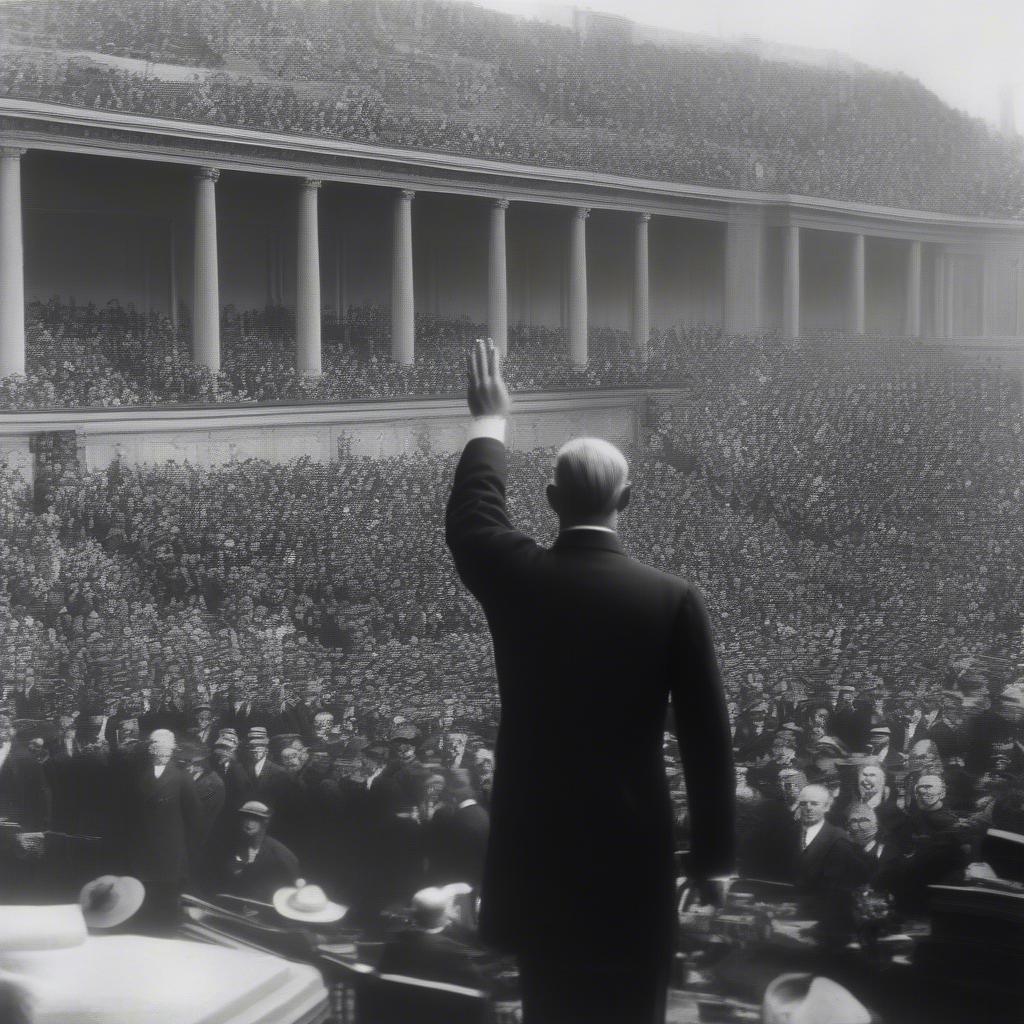
Woodrow Wilson, the 28th president of the United States, remains a figure of both admiration and controversy. His presidency, spanning from 1913 to 1921, was marked by progressive domestic reforms, leadership during World War I, and a passionate pursuit of international cooperation through the League of Nations. But Who Was Woodrow Wilson beyond the headlines? This exploration delves into the life and legacy of this complex and influential leader.
Table Content:
Born Thomas Woodrow Wilson in Staunton, Virginia, in 1856, Wilson’s early life was steeped in the aftermath of the Civil War and the religious fervor of his Presbyterian minister father. This upbringing instilled in him a deep sense of morality and a belief in the power of ideas to shape the world. He excelled academically, earning a doctorate in political science from Johns Hopkins University and becoming a respected scholar and university president before entering politics.
Wilson’s political career began as governor of New Jersey in 1911, where he quickly established himself as a reformer, tackling issues like corruption and corporate influence. This reputation propelled him to the national stage, and in 1912, he won the presidency on a platform of “New Freedom,” promising to break the grip of big business and empower the average citizen.
As president, Woodrow Wilson enacted significant progressive legislation. The Federal Reserve Act established a central banking system, providing greater stability to the American economy. The Clayton Antitrust Act strengthened existing antitrust laws, curbing monopolistic practices. He also championed legislation establishing the Federal Trade Commission, further regulating business and protecting consumers. These reforms reflected Wilson’s commitment to a more just and equitable society.
However, Wilson’s presidency was also marked by racial segregation. Despite his progressive ideals, he oversaw the re-segregation of federal workplaces, a stark contradiction to his rhetoric of equality and opportunity. This aspect of his legacy continues to draw criticism and serves as a reminder of the complexities of his character and the limitations of his vision.
The outbreak of World War I in 1914 presented Wilson with an unprecedented challenge. Initially, he maintained a policy of neutrality, hoping to keep the United States out of the European conflict. However, unrestricted German submarine warfare and the Zimmerman Telegram, which proposed a German-Mexican alliance against the United States, ultimately led to America’s entry into the war in 1917.
As wartime president, Woodrow Wilson mobilized the nation for war and played a crucial role in shaping the Allied victory. He also articulated his vision for a postwar world order based on international cooperation and collective security. This vision found expression in his Fourteen Points, a set of principles for peace negotiations that emphasized self-determination, open diplomacy, and the establishment of a League of Nations.
While Wilson played a key role in the Paris Peace Conference, his vision for the League of Nations faced significant opposition at home, particularly from Republican senators who feared entanglement in European affairs. The Senate ultimately refused to ratify the Treaty of Versailles, which included the Covenant of the League of Nations, effectively preventing the United States from joining the organization. This defeat was a major blow to Wilson, who had invested enormous political capital in the League.
 Woodrow Wilson Giving a Speech about the League of Nations
Woodrow Wilson Giving a Speech about the League of Nations
In the final months of his presidency, Woodrow Wilson suffered a debilitating stroke that left him partially paralyzed and largely incapacitated. His second wife, Edith Wilson, played a significant role in shielding him from public view and managing the affairs of state. This period of secrecy raised questions about the extent of her influence and fueled speculation about the true state of the president’s health.
Woodrow Wilson left office in 1921 a broken man, his grand vision for international peace unrealized. He died three years later, leaving behind a complicated legacy. He was a progressive reformer who expanded the role of government in American life, a wartime leader who guided the nation through a global conflict, and an internationalist who championed the cause of collective security. Yet, he was also a man of his time, whose views on race and other social issues reflect the prejudices of his era.
 Woodrow Wilson Signing the Federal Reserve Act
Woodrow Wilson Signing the Federal Reserve Act
Conclusion
Who was Woodrow Wilson? He was a complex and contradictory figure, a visionary leader whose idealism was often tempered by the realities of politics and the limitations of his own time. His legacy continues to be debated and reinterpreted, reminding us that history is not a simple narrative but a tapestry of triumphs and failures, of progress and setbacks. Understanding Woodrow Wilson requires grappling with the complexities of his character and the enduring impact of his decisions on the world we live in today.
FAQ
- What were Woodrow Wilson’s most significant domestic achievements?
- How did Woodrow Wilson’s upbringing influence his political views?
- What role did Woodrow Wilson play in World War I?
- Why did the United States fail to join the League of Nations?
- What controversies surround Woodrow Wilson’s presidency?
- What was the “New Freedom” platform?
- How did Woodrow Wilson’s health affect his second term in office?